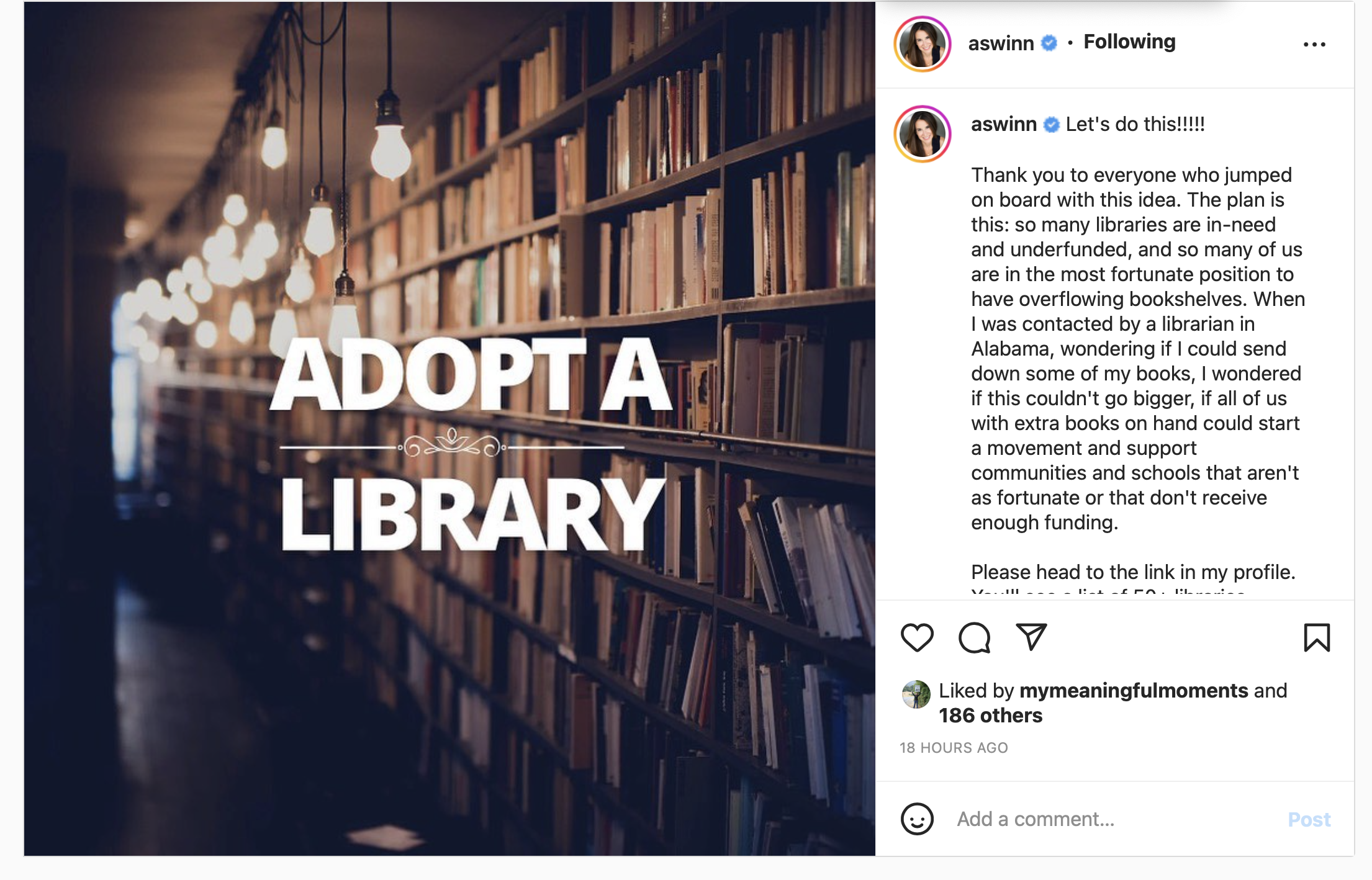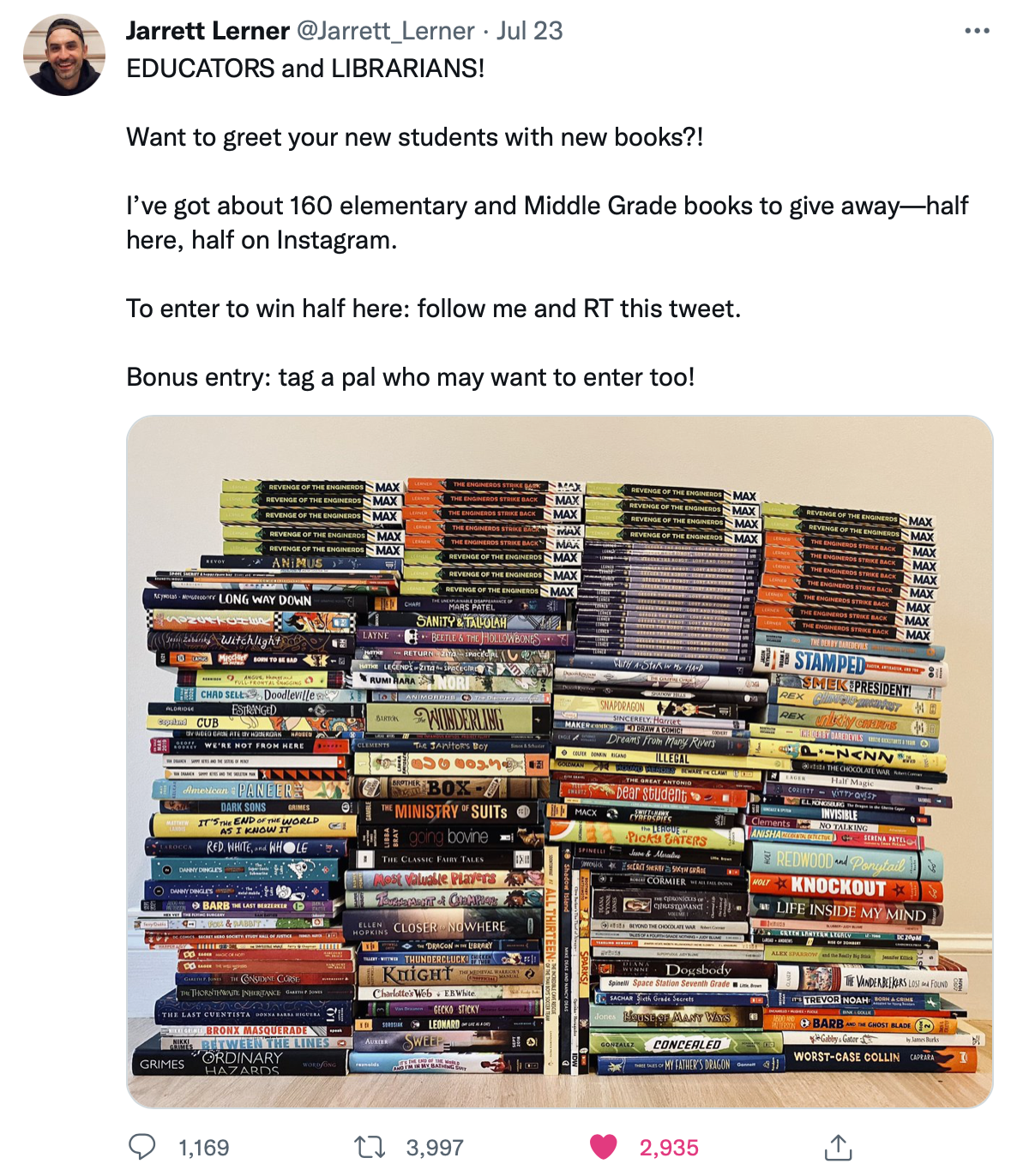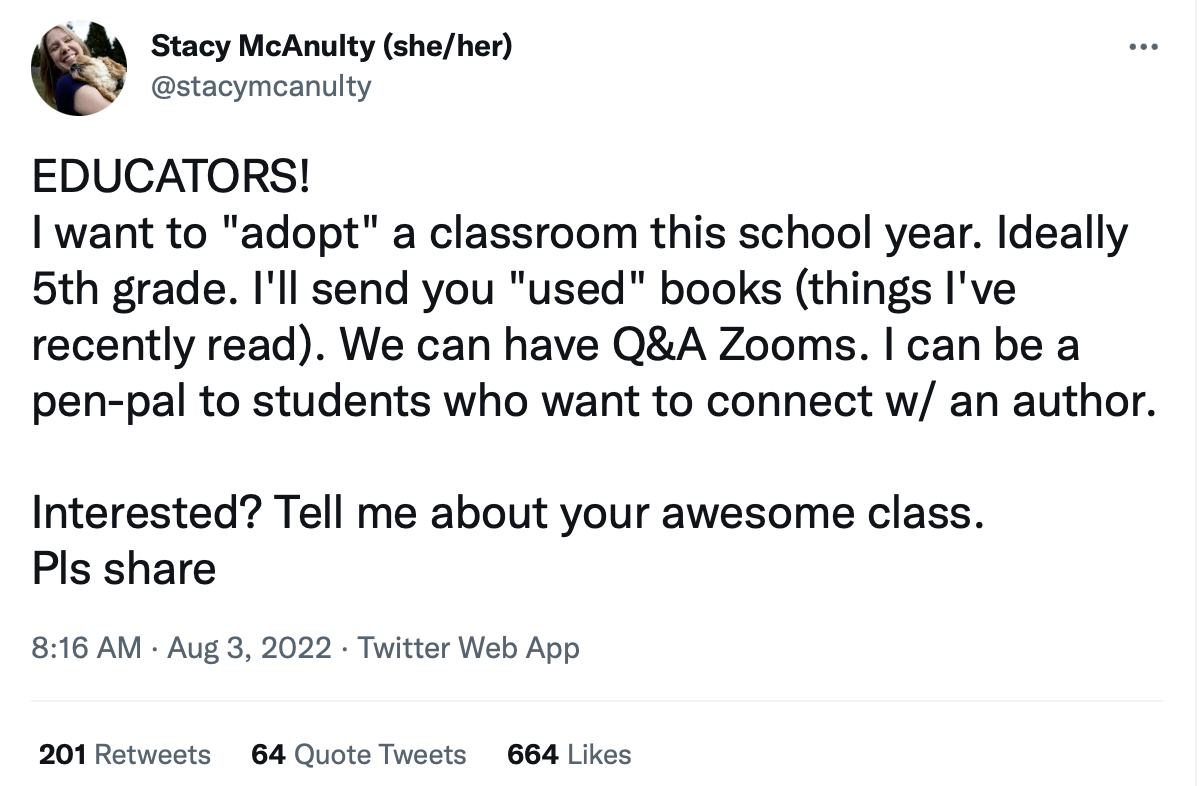If you are a writer or creator who feels:
- You one day want your work to be read/seen
- You worry you just don’t have the network — the access — to others who create, who engage your ideal readers, and to your ideal readers themselves
Then I want to tell you about this truly incredible resource you have. It’s a power that I find many people (myself included) under-utilize. It’s this:
Be generous.
Okay, before you hang up! Before you stop reading because this sounds so vague and trite and like it isn’t going to help your Amazon algorithm, please bear with me…
Not long ago, I wrote about how Generosity Should Be Your Platform. In today’s post, I want to share a few examples which I’ve seen recently, and explore other ways that generosity can be helpful to your creative goals, and let’s face it, make everyone (including yourself) feel good along the way. Oh, and the nice thing is that all of these examples focus on BOOKS. This isn’t “be generous by giving away an iPad!”
I hear so many writers and creators bemoan that they just can’t seem to get attention or grow a platform. They see others who have a big online platform, and justify that it was easier years ago to get big on Twitter or Instagram or in a newsletter. But generosity is this amazing tool that helps get attention quickly. Why? Because one thing people value is to feel seen. To feel heard. To feel validated. To feel supported. To feel that someone else shares their enthusiasm, their goals, or their challenges. And generosity tends to address these things.
Let’s dig in…
What Generosity Looks Like
So here are three examples I wanted to share, each seems to have started with a simple social media post, someone exploring an idea that they didn’t know if it would truly engage people. The first is from author Allison Winn Scotch:
The results so far? Allison has identified 50 public and school libraries who have asked for support. These libraries are all over the US, including in Arkansas, North Carolina, Montana, Georgia, Texas, Virginia, Michigan, Illinois, Pennsylvania, Maine, Oklahoma, California, Nevada, Alabama, New Jersey and many other states.
The librarians let Allison know the kinds of books they are looking for, and she is managing a spreadsheet system to allow people to volunteer and coordinate direct donations of books to the librarian.
The second example is from author Jarrett Lerner:
I mean, just look at the stats at the bottom of that post: 1,100 comments, nearly 4,000 people resharing this on Twitter which has to mean it is now reaching… hundreds of thousands of people? Plus nearly 3,000 likes. You will also notice that Jarrett is giving away plenty of copies of his own books here too, plus that of many — many — other authors.
And the third example is from author Stacy McAnulty:
When I looked at the comments on this Tweet, I was blown away by the number of teachers who responded to Stacy, or people who tagged teachers they knew.What’s nice about these three examples is that they are varying levels of commitment. Allison is trying to recruit 50 volunteers and coordinate between 50 places. Jarrett is going to have a lot of mail to deal with in sending out those books. And Stacy will have a commitment throughout the school year. You get to choose the kind of experience you want to create.
Why Do This?
So for a moment, let’s forget about any aspect of these campaigns that are about doing good or feeling good. (I will note that I don’t think any of the authors above are doing this for “marketing” reasons. I think they just truly want to help out kids, readers, libraries, and classrooms, and that’s all.) But let’s ask the question that I have to imagine some of you may be thinking:
“Dan, I’m busy. I’m stretched thin with every resource: money, time, and energy. Why do you want me to now spend hours and hours to give away other people’s books? Or to donate my time when I’m still just tryin to write or get any exposure at all for it?”
Great question!
But… if we think about the value here strictly from a business standpoint, let’s look at some of the potential benefits:
- Generosity is something others tend to want to participate in and share with others. So if you are looking for an idea that others may pay attention to online, and perhaps share with their own networks, generosity is a great way to do it.
- Generosity is a nice way to access to those who feel influential to your ideal readership. It’s not uncommon for a writer to say, “I don’t have a platform, I don’t have a network as a writer at all, and why would anyone with influence even want to open an email from me?” Well, generosity is tends to break through to these people because it is about something they care about deeply.
- Generosity is a great way to build awareness of your very existence within your target audience.
- Generosity can give you exposure to your ideal readers and target audience. Many writers express to me that they don’t know anyone who reads the kind of work they write. Well, this could be a way to build those connections and create those conversations.
- Generosity can create word of mouth marketing and publicity. I mean, me writing this post has me writing about Allison Winn Scotch, Jarrett Lerner, and Stacy McAnulty.
- Generosity builds trust. That is such an important part of what it means to develop a platform as an author. Not just to be known, but for people to feel a sense of trust with you. I always think of this when I consider how someone develops a business. For instance, word of mouth marketing for a plumber tends to work like this: “You should hire ______, he’s someone you can really trust.” Versus “You should hire ______, he’s someone who has 3 years more experience than that other plumber.”
Maybe you are thinking that all of these examples focus on a certain kind of reader or a certain kind of donation or certain kind of place, and that isn’t a great fit for you. Wonderful! That means you can take an idea that you see working in other genres/topics/audiences, and ideate ways to apply it to your own!
Have you seen other examples of generosity? I’d love to see them.
Thanks.
-Dan



